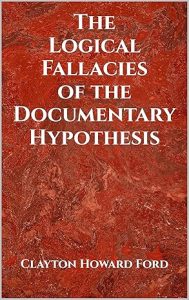2 Cor. 10:3-5 is the classic example of why we need to read and study the Scriptures in context. Many preachers and teachers of the Bible tell us that this passage means that each of us Christians have been equipped with spiritual weapons that should be used to pull down the strongholds in our minds, to cast down the arguments in our minds, to cast down every high thing in our minds that exalts itself against the knowledge of God, and to bring every thought in our minds into captivity to the obedience of Christ. Joyce Meyer even wrote an entire book based on this understanding of this passage. It all sounds so good and so spiritual—except that is not what Paul is talking about at all.
Now it is true that the Bible tells us to guard our thought life. It tells us to meditate on (that is, think about) the things that are true, noble, just, pure, lovely, of good report, virtuous, and praiseworthy (Phil. 4:8). It also tells us to be transformed by the renewing of our minds (Rom. 12:2). But we do not stop evil thoughts by changing our way of thinking. Jesus said that the source of our evil thoughts is our heart (Matt. 15:19). Seeing an attractive woman and having a fleeting thought about her is not the problem; lusting for her from the heart is the problem (Matt. 5:28). Eliminating evil thoughts, therefore, requires a change in heart, not a change in mind. So, too, the cure for double-mindedness is not fixing the mind but purifying the heart (James 4:8). Proverbs tells us to “Keep your heart with all diligence, for out of it spring the issues of life” (Prov. 4:23). How do we keep our hearts? The peace of God will guard (keep) our minds and hearts if we make our requests known to God through prayer and supplication with thanksgiving (Phil. 4:6-7). So we fight our evil thoughts by purifying our hearts and guarding our hearts through prayer, not by tearing down strongholds and taking captive our thoughts.
The context of 2 Cor. 10:3-5 begins at verse 1 and continues to the end of the book. Verse 1 begins with “Now,” which is a signal that Paul is beginning a new subject. Not only have the preachers and teachers taken verses 3-5 out of context, they have not even let Paul finish his sentence. The sentence that begins in verse 4 ends not in verse 5 but in verse 6, which says, “and being ready to punish all disobedience when your obedience is fulfilled.” If verses 3-5 are addressed to each of us, then verse 6 must be also. But are we ready to punish all disobedience? And when did we become authorized to punish disobedience?
Paul says that “we” are ready to punish all disobedience when “your” obedience is fulfilled. Who is “your”? Obviously, the Corinthians. Who, then, is “we”? Not us Christians. “We” must be Paul and those with him. Or possibly this is an editorial “we.” Paul is saying, in verses 3-6, that he does not war according to the flesh, that his weapons are not carnal but are mighty in God for pulling down strongholds, that he will cast down arguments, that he will cast down every high thing that exalts itself against the knowledge of God, that he will bring every thought into captivity to the obedience of Christ, that he will punish every disobedience when the obedience of the Corinthians is fulfilled. The word “thought” in verse 5 is actually a mistranslation. The Greek word used here, noēma, can mean “thought,” but it is used in the New Testament only by Paul in 2 Corinthians and Philippians and he uses it to mean “purpose” or “mind.” He intends to bring every purpose or mind into captivity to the obedience of Christ. But whose purpose and mind does he intend to bring into captivity? And whose disobedience is he ready to punish?
Paul starts the passage in verse 1 by reminding the Corinthians that he is meek and gentle and lowly when he is with the Corinthians, but bold towards them when he is absent from them. But when he returns, he intends to be bold “against some, who think of us as if we walked according to the flesh” (v. 2). When we read the rest of the context past verse 5, we find that false apostles had come to Corinth and the Corinthians had fallen for their false teachings. Paul intends to confront and to take captive the purposes or minds of these false apostles and those who follow them and to punish their disobedience, but only after the Corinthians have repented and have again become obedient to the gospel which Paul had preached to them. Otherwise, he would have to punish them also. Paul is writing to the Corinthians and telling them of his intent so that they have time to repent before he gets there. This passage, then, is about Paul taking a stand against certain people in Corinth, not about us taking captive our own thoughts.
2 Cor. 10:3-5 is about engaging in spiritual warfare against false teachers. It is not about engaging in spiritual warfare against our own thought life. Ironically, well-intentioned preachers and teachers derived the second meaning out of this passage because they did exactly what false teachers do to the Scriptures: they read the passage out of its context.









good post
thanks, very interesting 🙂
Thanks a lot for the article post. Really thank you! Great. Jacquelyn Milty Botsford